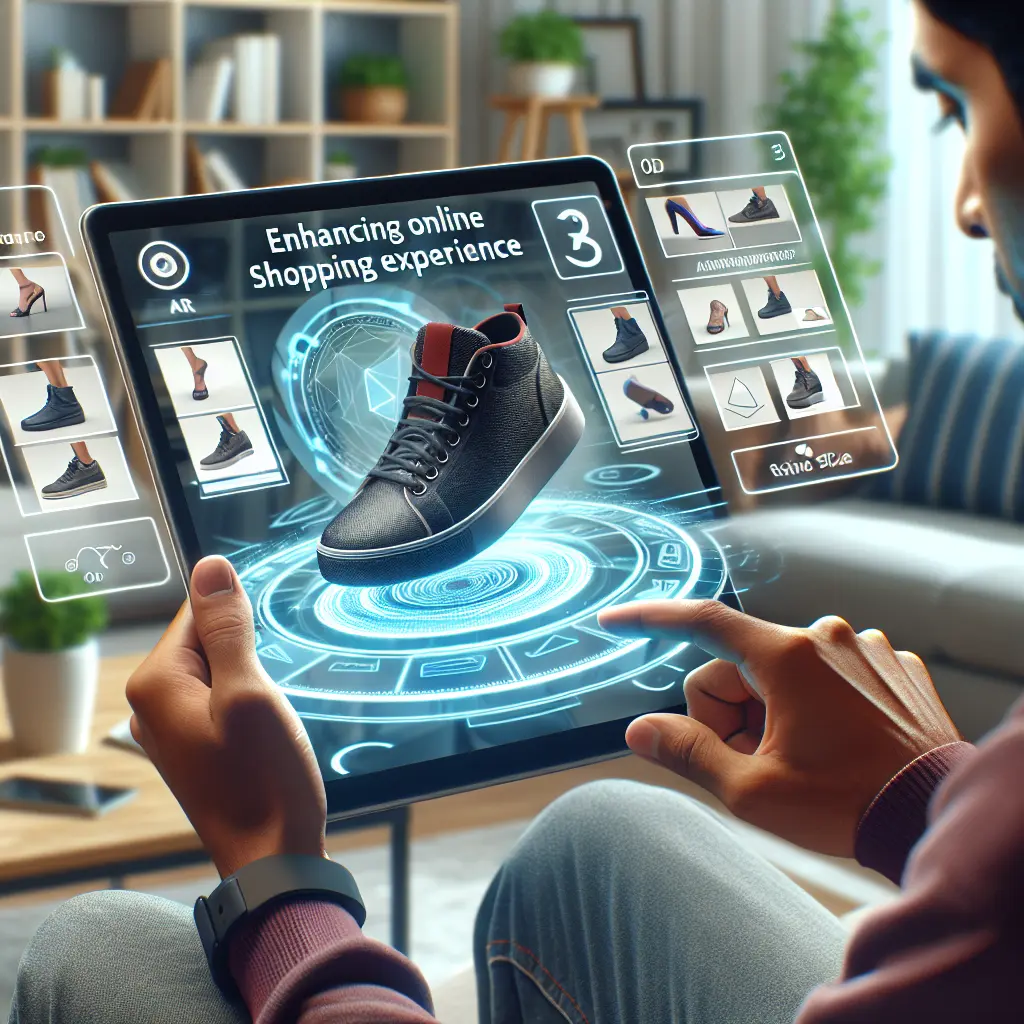
In the dynamic world of online retail, leveraging augmented reality (AR) is not just a trend but a transformative force reshaping how consumers engage with e-commerce platforms. By integrating AR technology, businesses are creating immersive shopping experiences that bridge the digital and physical realms. This integration is rapidly becoming a crucial strategy for businesses aiming to enhance customer engagement and differentiate themselves in a competitive market.
The Rise of Augmented Reality in E-commerce
Augmented reality in online retail offers significant opportunities to enhance the e-commerce experience through virtual try-on technology and AR product visualization. These tools allow customers to preview products within their real environments, transforming traditional shopping into an interactive experience. As noted in a recent article by Retail Dive, the adoption of AR in shopping contexts has been shown to increase consumer engagement and satisfaction, crucial aspects in reducing return rates and fostering customer loyalty.
Virtual Try-On Technology: A Game Changer
Virtual try-on technology is a pivotal AR retail solution, especially in fashion retail, where the ability to see how clothing or accessories look on a person can significantly influence purchase decisions. This technology was highlighted by Forbes as a means to personalize the shopping experience and increase conversion rates by giving customers confidence in their purchases.
Case Study: Macy’s AR Integration
Macy’s, despite facing overall sales drops, remains optimistic about its "First 50" strategy, which incorporates AR technology to enrich customer experiences at select locations. According to Business Insider, Macy's has introduced virtual shopping tools that allow customers to visualize furniture and other home goods in their spaces before making a purchase. This approach not only enhances online shopping innovation but also drives foot traffic to their physical stores by offering a unique blend of online and offline experiences.
AR Customer Engagement: Beyond the Screen
The benefits of augmented reality e-commerce extend beyond virtual try-ons. Brands like Neiman Marcus are using augmented reality product visualization to showcase intricate product details, providing customers with a comprehensive understanding of products that pictures alone cannot convey. This was emphasized in a report by Retail TouchPoints, discussing how AR tools can simulate physical interaction with products, thereby enhancing customer engagement.
Interactive Online Shopping Experiences: The Future Is Now
Interactive online shopping experiences powered by AR technology are setting new standards in retail. TalkShopLive's partnership with NBCUniversal highlights the use of shoppable videos—an emerging trend where entertainment meets commerce. This collaboration, as reported by TechCrunch, uses AR to make live-streamed content purchasable directly within the video interface, offering an engaging and seamless buying experience.
The Strategic Importance of Augmented Reality for Businesses
For businesses aiming to stand out, implementing AR in online retail is not merely an option but a necessity. The ability to provide immersive shopping experiences through virtual shopping tools enhances brand value and fosters customer loyalty. As reported by McKinsey, companies that have embraced AR solutions have seen significant improvements in their e-commerce metrics, including reduced return rates and increased average order values.
Augmented Reality Fashion Retail: Personalization at Its Best
In the realm of augmented reality fashion retail, personalization is key. Retailers like HBC, parent company of Saks Fifth Avenue, are harnessing AR technology to offer tailored shopping experiences that cater to individual preferences. As noted in a Vogue Business article, such innovations enable brands to connect with tech-savvy consumers who value efficiency and customization in their shopping experiences.
Conclusion: The Transformative Power of Augmented Reality in Online Shopping
Augmented reality (AR) is revolutionizing the online shopping landscape by bridging the gap between digital and physical experiences. The integration of AR is reshaping how consumers engage with e-commerce, offering immersive and interactive experiences that redefine traditional shopping paradigms.
Enhanced Consumer Engagement: AR technology, including virtual try-ons and product visualizations, significantly boosts consumer interaction and satisfaction, as highlighted by industry reports such as those from Retail Dive and Forbes.
Innovative Retail Strategies: Retailers like Macy's and Neiman Marcus leverage AR to enhance both online and in-store experiences, driving customer loyalty and reducing return rates. Business Insider's insights demonstrate how AR can transform customer engagement.
Strategic Business Importance: Embracing AR solutions is crucial for businesses aiming to differentiate themselves in a competitive market. As reported by McKinsey, companies that have integrated AR into their strategies see improved e-commerce metrics.
Personalization and Customization: AR enables brands to deliver personalized shopping experiences tailored to individual preferences, crucial for fashion retailers such as Saks Fifth Avenue, as discussed by Vogue Business.
As we look to the future of retail, it's clear that augmented reality is not just a trend but a fundamental shift in how consumers interact with brands. By offering engaging and personalized shopping experiences, businesses can meet the evolving demands of tech-savvy consumers. For those ready to embrace this technological revolution, AR offers limitless opportunities to craft unforgettable customer journeys.
As we close this exploration of AR's impact on e-commerce, I invite you to share your experiences and insights. How has augmented reality influenced your shopping habits? Join the conversation below and let's delve into the future of shopping together.
Author: Maxwell Harper